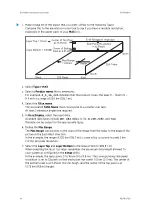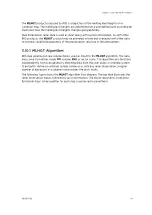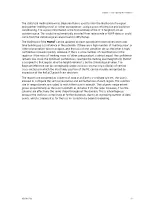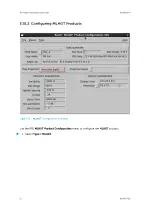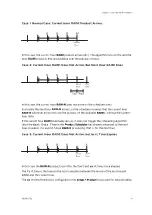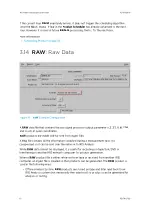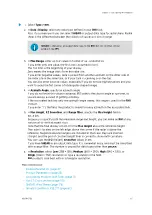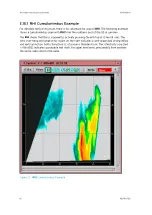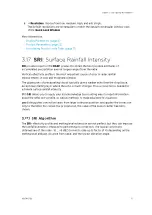
Set the
Skip Time
field to 01:00 so the
RAIN1
product runs every hour. This is recommended
because the
RAIN1
product for multiple hour accumulations works best if there is a product
every hour.
The
RAIN1
product must wait for arrival of all the input
CAPPI
s during the accumulation
period.
The trigger is the arrival of a
CAPPI
that is in the next accumulation period.
There are 2 cases that the product scheduler must handle, that is, the next hour
CAPPI
either
arrives or it does not arrive. Note that in the time-line figures below:
• The horizontal line represents the data time, the time of the start of a volume scan.
• The
C
represents an input
CAPPI
product.
• The vertical bar represents an the next accumulation period.
Case 1: Normal Case: Next hour CAPPI Arrives
C
C
C
C
C
C
C
C
The
RAIN1
product is run as soon as a
CAPPI
from the next accumulation interval arrives.
Case 2: Late Case: Next accumulation Interval CAPPI Does Not Arrive
C
C
C
C
C
C
C
Tail
Wait
The
RAIN1
product runs after the
Tail
and
Wait
times have elapsed from the file arrival
time of the last input
CAPPI
.
Tail
is the time difference between the data time of the last
CAPPI
and the next
accumulation period. The
Wait
time threshold is configured in IRIS
Setup > Product
, where
you can configure a different value for cases with raingage inputs. The
Wait
time threshold
is tuned to account for any network delays.
More information
‣
RAIN1 Scheduling with GAGE Product (page 372)
‣
Scheduling Products (page 114)
IRIS Product and Display User Guide
M211319EN-H
58
RESTRICTED
Summary of Contents for IRIS
Page 1: ...M211319EN H RESTRICTED User Guide IRIS Radar IRIS Product and Display...
Page 12: ...IRIS Product and Display User Guide M211319EN H 10 RESTRICTED...
Page 71: ...Chapter 3 Configuring IRIS Products RESTRICTED 69...
Page 303: ...Figure 103 Typical Spectrum Plot Appendix A Basic Radar Meteorology RESTRICTED 301...
Page 386: ......
Page 392: ......
Page 393: ......
Page 394: ...www vaisala com...



